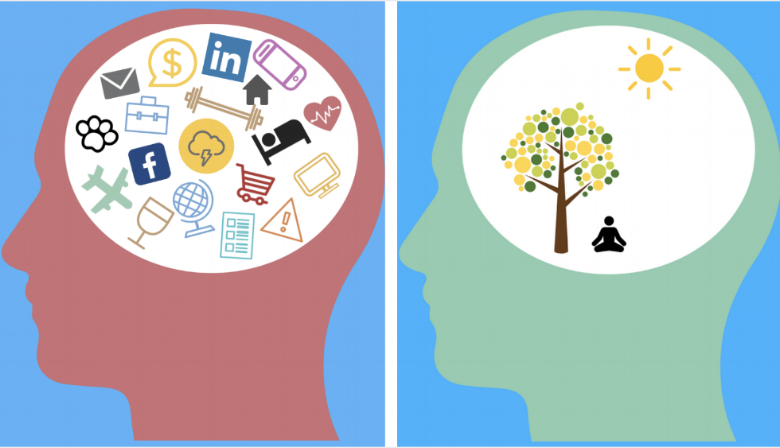念 Now + Heart = Mindfulness
Listen to these Kindergarten children explain how they use mindfulness to calm down when feeling angry or upset. They ‘just breathe’, take a moment to pause and notice what is going on in their body.
“Mindfulness means paying attention in a particular way: on purpose, in the present moment, and nonjudgmentally.”
We are naturally born mindful. If you observe young children more closely in some countries in the world with little exposure to technology, children play, they are creative and their imagination is what often keeps them company not technology.
As we grow up, through our environment and relationships we are taught to assess and judge. Our grandparents, parents, caregivers, siblings, peers and teachers influence our development and behaviour. We adopt a sense of right and wrong and a particular value set and sometimes never question it until much later in our lives.
Mindfulness supports our physical, mental and emotional health. It is a natural way to support the digestion of life and process all the demands that are placed upon us as children and adults. By focusing our attention in a non-judgemental way we develop a greater capacity for compassion and empathy towards ourselves and others. This deeper sense of connection with others and having meaningful relationships is vital for our mental and emotional wellbeing throughout life.
mind full or mindful?
“I define mindfulness as the practice of being fully present and alive, body and mind united. Mindfulness is the energy that helps us to know what is going on in the present moment.”
Benefits of mindfulness for children & adults
Physical
Improves sleep quality
Reduces fatigue
Enhanced brain to muscle (neuromuscular) coordination and strength
Improved respiratory function and breathing patterns
Better flexibility and balance
Improves heart health
Lowers stress hormone -cortisol
Mental
Improved stress manangement
Positive effect on student results
Better brain (cognitive) function
Improved concentration & focus
Increased resilience and function under pressure
Decreased anxiety levels
Reduce impact of negative thoughts
Emotional
Improved self-esteem and confidence
Greater emotional regulation
Improved sense of calm
Balanced moods and emotions
Reduced feelings of loneliness, anxiety and depression
Social
Less reactive, hostile and aggressive behaviour
Increased ability to focus and control behaviour under pressure or stress
Improved social interaction with others
Greater self-awareness
Improved attention span, adaptability skills
Improved behavioural symptoms and social skills



